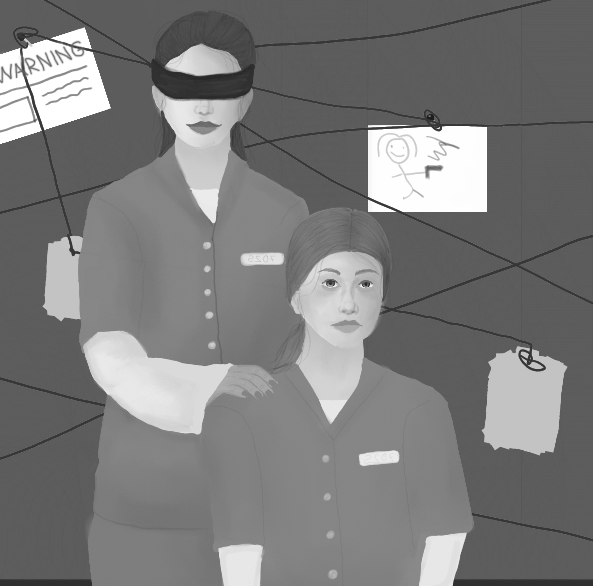
As more and more school shootings plague the United States, expanding accountability is necessary to address the crisis. It is imperative to start looking toward parental involvement and the means by which firearms are acquired.
To start, it is crucial to look into the Michigan shooting that occurred on November 30, 2021, in which Ethan Robert Crumbley opened fire on Oxford High School in Detroit. Before the shooting, one of his teachers became concerned about his mental health after viewing his violent drawings containing blood and guns. The teacher then called his parents, Jennifer and James Crumbley.
The parents had bought a gun for their young son just days before, ignored the teacher’s concerns and chose to allow their son to continue the school day. Hours later, Ethan Crumbley pulled a gun from his backpack and proceeded to kill four students and injure seven others.
The parents’ negligence led to the first case in the U.S. where the parents were found criminally responsible for their child’s actions. Jennifer and James Crumbley were both sentenced to ten years in prison because the event was deemed preventable. The ruling shows that parents who neglect or ignore warning signs should be held responsible for their child attacking a school, or anywhere for that matter.
In some instances, parents actively intervene to prevent their children from committing violent acts, which raises important legal considerations. When parents make genuine efforts to address their child’s troubling behavior, they should not face legal liability for actions they sought to prevent. This distinction is crucial in understanding the responsibilities of parents in situations involving mental health issues and potential violence.
When teenagers exhibit clear warning signs – such as struggling mental health – parents must be responsible for taking preventative measures. The blame, however, does not fall on parents but also the schools. For a student to feel the need to violently attack their peers and teachers, there must be a cause. Schools should have better mental health care available to their students.
According to statistics published by the Statista Research Department, “In 74 cases out of a total of 151 reported mass shootings in the United States since 1982, the shooter(s) displayed prior signs of mental health problems.” The data shows the urgent need for proactive measures as it reiterates the correlation between identifiable mental health issues and violent behavior, suggesting that early intervention could potentially save lives. If schools and parents would take warning signs from struggling teens seriously, then they could help prevent tragedy from occurring.
While there have been few cases where parents are facing repercussions for their children’s actions, it is a new response to shootings that is gaining more standing. New cases are now following the line of the Michigan shooting, such as with the more recent Georgia shooting.
Colt Gray, a student at Apalachee High School in Winder, Georgia, had sent an apology text to his mother earlier that day, prompting her to warn the school and plead for their help. His father, Colin Gray, was the one who had taught him to shoot and had supplied his son with a gun, which became the driving factors in his criminal charges.
As new legal precedent develops, the cases of Colt Gray and his parents demonstrate the complexities of parental responsibility in preventing youth gun violence, raising critical questions about accountability and the boundaries of parental actions in tragic circumstances. CNN reported that the charges against Colin Gray set new boundaries for the legalities of parental responsibility with regard to a child’s alleged gun crime.
It is important to understand how specific the two incidents were in how parents were held responsible. The results are not something that should be expected. With certain cases, like with Colt Gray’s, there are parents who try to step in and stop their child from committing horrific acts.
In cases where parents try to stop their children from shooting up a school, they should not be held legally liable as they did try and take proactive steps. In other cases, such as Ethan Crumbley’s, where his parents ignored the warnings and played an active role in his actions, parents should be held accountable.

